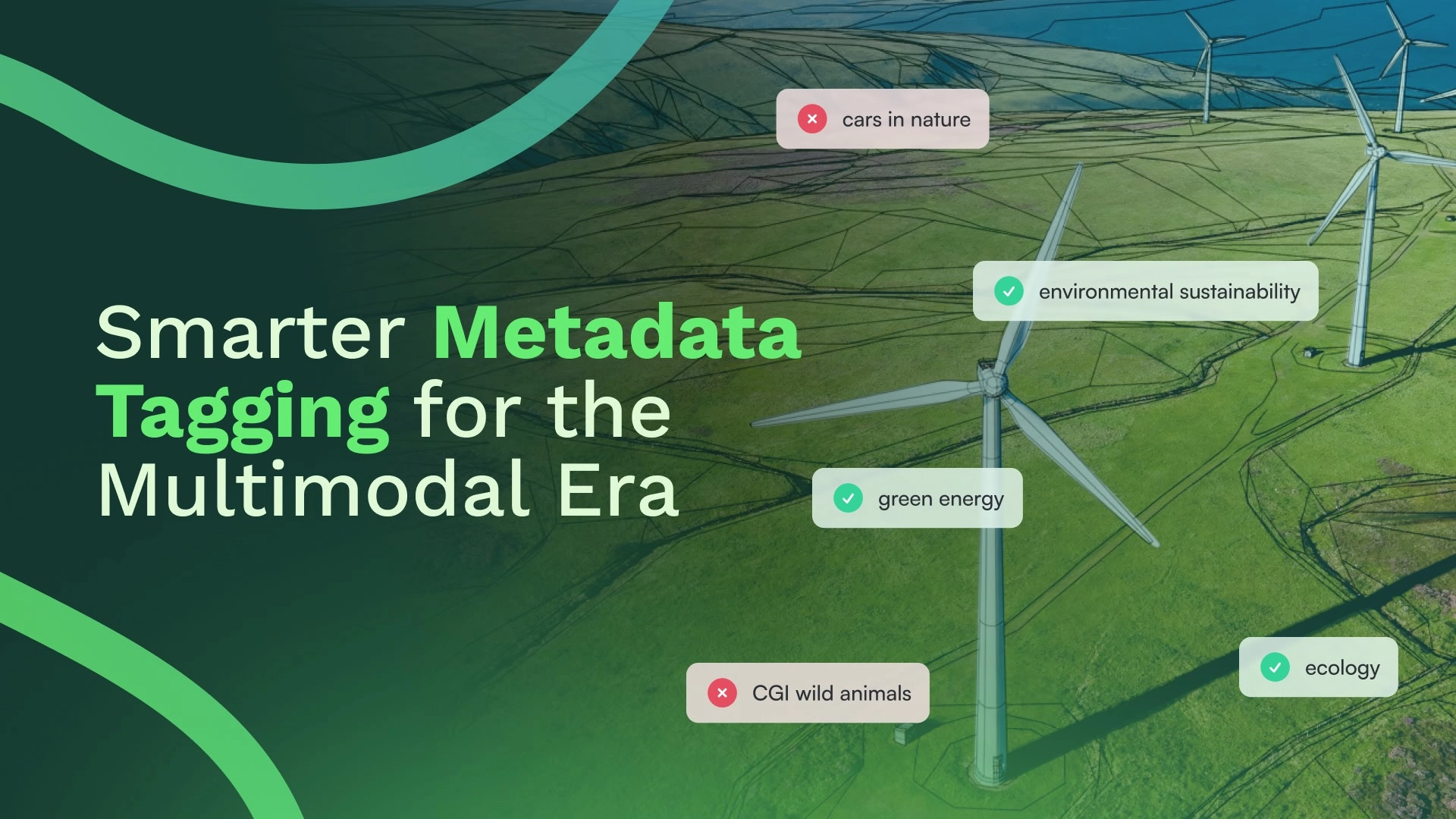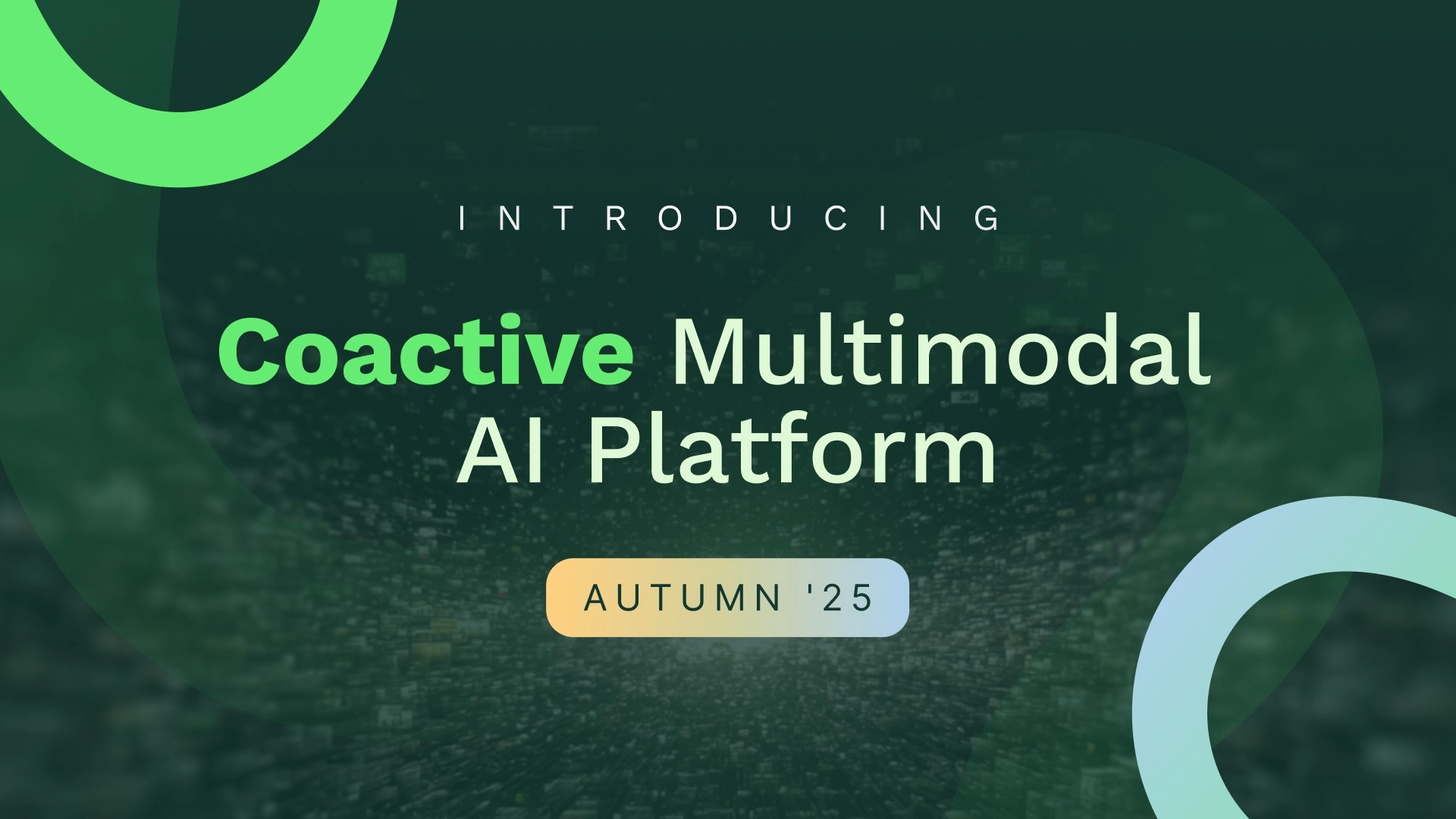


Why culture is our primary product

We build product, but we develop people. That’s our ethos. If inclusivity and teamwork genuinely matter to you, and you’re looking to revolutionize the world of data centric AI, then read on. (Or check out our job openings, that works too). Company culture was the first thing Coactive built. We’re inclusive, dynamic, and team-oriented by design, and in this blog post our co-founder Will Gaviria Rojas explains why.
Hey Will! Today we’re talking about the unique culture at Coactive. Can you give us a little background as to what drew you and Cody together as co-founders in the first place?
It wasn’t a shotgun wedding situation — we’ve known each other for over ten years as close friends. We’ve seen each other in every situation in life and we share a deep level of trust. This provided us with a great starting point, but we also had to carefully consider our other respective characteristics. To run a successful business together, we knew we had to both be bringing the right kinds of personalities, education, experience, and attitudes. Cody and I are a great fit on all counts, so we decided to launch Coactive.

Why was culture the first thing you made together at Coactive?
Our past experiences of poor organizational cultures really motivated us to make this a priority from the outset. We’d both worked in industry and academia, and had often been left feeling like the odd ones out. For example, despite being in a grad school program that genuinely valued and pursued diversity, my everyday reality within the larger context of the university was that there were very few people there with similar backgrounds as me. Cody’s experiences were similar — to the best of my knowledge he was the first Black person to graduate Stanford with a PhD in computer science in almost twenty years.
Similar issues occurred in workplaces where people's behavior wasn't explicitly malicious, but it certainly wasn't inclusive and would often have negative side effects. Inclusion was usually only an afterthought in these places, and it made things harder than they needed to be for both Cody and me.
We’ve seen what can happen in academia and industry when big egos dominate. This permeates from the leadership. Even if it’s not explicit, it’s what spreads. The opposite scenario where leaders don’t care about culture at all is usually just as bad. When culture is an entity without a leader, it usually results in a culture that is quietly dismissive at best and toxic at worst. Being in places where you’re the odd one out and culture is not valued makes things like imposter syndrome and self-selection that much harder to overcome.
Cody and I wanted to build an organization where people can hit the reset button on negative past experiences and be part of a culture that feels like a breath of fresh air.
For us, the scariest scenario would be to wake up one day and realize we've created a company culture that our employees are running from, much like we once did.
Because of this, we decided to make culture our first product. We talked explicitly with each other about our past experiences and we outlined how we wanted Coactive to be better. Our priorities are to empower individuals and build a strong synergy of the team as a whole — not one or two big personalities that dominate.
For these reasons, the first thing we built and published on GitHub was our culture. It is our first and most important product that anyone out there can read, fork, and submit PRs to — much like an open-source project.”
Can you give an example of Coactive’s principles?
We like to say we’re a team working together in a relay race. We all play supporting roles, but ultimately we succeed or fail as a team. We invite humility and gratitude, and we expect people to put their egos aside.
We also encourage everyone to act boldly and take ownership over their decisions. This means we aim to strike a balance between people feeling empowered but accountable. But being bold doesn’t mean being abrasive though — we also expect people to show thoughtfulness and empathy towards everyone around them. That’s extremely important to us.
Lastly, we want it to be clear that everyone’s opinions are valid and should be heard. However, we expect people to be able to explain and justify their positions, and to be open to healthy challenges from all directions. This openness and willingness to encourage hard conversations is how we grow.

How is Coactive different from other tech businesses and what would make someone a great fit?
There’s a big difference between saying culture comes first and actually putting it first. We take this commitment very seriously and it’s something we emphasize for people coming in. For example, in an interview, cultural fit for us is a deal breaker, even if someone is an all-star technically.
Our idea of a successful and empathetic culture is having a lot of diverse individuals with different backgrounds and opinions. From individuals’ socioeconomic backgrounds, to life philosophies, to previous work experiences, these variables are all unique strengths.
I wouldn’t say there’s a particular one characteristic that makes someone a great fit for Coactive. That’s part of our commitment to diversity. We’re looking for what people can bring that’s unique to them and that further strengthens our team.
Everyone on our team is very unique and they all bring different things to the table. Despite these differences, the key thing is that everyone who joins us does so because they see a culture they want to be part of and desire to continue building. Similarly, for someone that joins in the future, our culture has to be something they want to be involved in.
We always say that we build product, but we develop people. That means someone joining us has to be ready to share their unique strengths while learning from everyone around them. We want to celebrate our differences.

You often describe Coactive as giving data analysts superpowers. What’s yours?
Hmm… I guess if you look at my history, you’ll see that I’ve pivoted many times. From computer science, to electrical engineering, to material science, to data science, then software engineering. So my superpower has become being able to go from zero to a hundred real quick because I’ve done it so many times in my life. I always enjoy being on the steep part of the learning curve. I wouldn’t call it a superpower, though, because anyone can do it with the right determination, it’s just something I’ve ended up practicing over the years.
What's exciting about this is that I'm a prime example of how Coactive appreciates and seeks out a diverse talent pool. My skill set is expansive and so are the skills of the people I work with. This is something great that I've learned from working closely with everyone on the Coactive team — we all have different 'superpowers'!
Thanks for your time, Will. We look forward to catching up with another Coactive superhero in the next blog. Mind your cape in the door!
If you want to be part of the future of machine learning, and value culture as much as we do, then check out our job openings. If you’re a business and you want to see our product in action, just request a demo.



